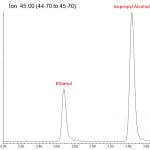Houston’s Premiere DWI Criminal Defense Attorneys.
[/vc_column_text][/vc_column][/vc_row][vc_row][vc_column width=”1/6″][vc_single_image image=”7006″][vc_row_inner][vc_column_inner][gap height=”20″][vc_column_text]- Former Prosecutor.
- Former Counsel for the Police Union.
- Board Certified Criminal Law Specialist.
- “…one of the outstanding criminal defense attorneys in Houston…”-Houston Chronicle.
- ⭐️⭐️⭐️⭐️⭐️Rating on Google, Yelp, and Avvo.
- Founding Member of the DUI Defense Lawyers Association.
With over fifty years of combined DWI experience our family operated, nationally recognized DWI criminal defense attorneys are dedicated to providing you with high-quality DWI solutions using innovative criminal defense.
Contact our Houston DWI criminal defense attorneys!
(713) 568-7011
[/vc_column_text]3200 Travis, 4th Floor Houston, TX 77006 
- “Drink, Drive, Go To Jail”
- “Buzzed Driving is Drunk Driving”
- “DWI, You Can’t Afford It”
These slogans are misguided, biased, and prejudicial.
- It is perfectly legal to drink and drive as long as you are not intoxicated.
- Buzzed driving is not drunk driving. In fact, drunk driving or buzzed are not legal terms. Nowhere in the Texas Penal Code is either mentioned.
- While DWIs are expensive, and you can’t afford a DWI conviction, with our DWI criminal defense attorneys by your side you can fight the DWI!
Learn more below or contact the DWI Criminal Defense Attorneys at the Adamo & Adamo Law Firm[/vc_column_text][vc_column_text]
Nationally Acclaimed DWI Criminal Defense Attorneys
[/vc_column_text][vc_column_text]What is DWI?
DWI is a criminal offense prohibiting a person from operating a MOTOR VEHICLE in a PUBLIC PLACE while INTOXICATED. The government has the burden of proving each above element beyond a reasonable doubt. Our DWI lawyers will show you just how difficult that can be.
What does intoxicated mean?
Intoxicated means you have “lost the normal use of either your mental or physical faculties or a breath, blood or urine test shows your alcohol level to be 0.08 or higher.” The government may also enhance a DWI if the blood alcohol result is 0.15 or higher at the time of the test.
Does DWI apply only to drinking?
No. The State can prove you loss the normal mental or physical faculties by alcohol, drugs, a controlled substance, some other impairing substance or combination thereof, although doing so is more difficult. Detected compounds, such as prescription drugs, rarely provide the necessary evidence for the State to make their case.
What are the punishment ranges for a DWI?
The most common question for a DWI criminal defense attorney is “I have been charged with (X), will I go to prison?” DWI criminal defense attorneys, familiar with the system, will be able to explain all your options to you. While the goal is always to achieve the best result possible, each case is different and presents a different way to achieve that goal. Below are the punishment ranges for DWI criminal offenses. The punishment ranges do not reflect the potential outcome of your case.
First-Offense DWI:
- BAC under 0.15 = Class B Misdemeanor, punishable from 3 to 180 days in jail and/or up to a $2000 fine.
- BAC over 0.15 = Class A Misdemeanor, punishable up to 1 year in jail and/or up to a $4000 fine.
- Class A Misdemeanor, punishable from 30 days to 1 year in jail and/or up to a $4000 fine.
Note: Your Texas driver’s license may be suspended for 180 days to 2 years.
- 3rd Degree Felony, punishable from 2-10 years in prison and/or up to a $10,000 fine.
Note: Your Texas driver’s license may be suspended for 180 days to 2 years.
DWI with a Child Passenger (under 15 years of age):
- State Jail Felony, punishable from 180 days to 2 years in a state-jail facility and/or a fine up to $10,000.
Intoxication Assault (accident + serious bodily injury + because of intoxication):
- 3rd Degree Felony, punishable from 2-10 years in prison, and up to a $10,000 fine.
Note: If you are granted probation – minimum 30 days in jail as a condition. Qualified DWI criminal defense attorneys may be able to convince the court of alternatives to jail (i.e. home confinement).
Intoxication Manslaughter (accident + death + because of intoxication):
- 2nd Degree Felony, punishable from 2- 20 years in prison, and up to a $10,000 fine.
Note: If you are granted probation – minimum of 180 days in jail as a condition.
What if I had an Open Container in my vehicle?
The minimum jail sentence is increased to 6 days.
What Does BAC mean?
Blood Alcohol Concentration. It is measured by the number of grams of alcohol per 100 milliliters of blood; number of gams of alcohol per 210 liters of breath; or the number of grams of alcohol per 67 milliliters of urine. The government must prove beyond a reasonable doubt you were 0.08 or higher at the time of driving or 0.15 or higher at the time of the test. Your DWI criminal defense attorneys should be able to clearly explain the numbers to you.
My bonding papers say DWI 1st, BAC > 0.08, does that mean my BAC sample was 0.08?
No. The information on the bonding papers represents what you are likely to be charged with. In this instance a Class B misdemeanor.
If you provided a breath sample, your DWI criminal defense attorneys will be receive the results fairly quickly. If a blood sample was given, the results may not be available for a month or even longer.
Your DWI lawyers will subpoena all records of both the breath test machine or blood testing machine to determine the reliability of the test.
What are my conditions of bond?
If you are charged with a DWI first offense, bond conditions are a matter of discretion for the court. Some courts MAY require you to install a vehicle ignition interlock device on your car and prohibit you from driving a vehicle not equipped with the device.
If you are charged with a subsequent DWI offense, Intoxication Assault, or Intoxication Manslaughter you WILL be required to install a vehicle ignition interlock device and be prohibited from driving a vehicle not equipped with said device.
If you do not have a vehicle to drive or a valid driver’s license the court may order a portable device or SCRAM device.
The police took my license. Is it suspended?
No. If you refused or failed a breath and/or blood test the officer most likely confiscated your driver’s license. In return, he/she should have issued you a temporary driving certificate authorizing you to drive for forty (40) days and given you notice your driver’s license is subject to suspension.
You have fifteen (15) days from the date your received notice to request an Administrative License Revocation (ALR) Hearing. If you fail to request a hearing within the fifteen (15) day window, the opportunity is lost and your license will be suspended on the 40th day after receiving notice (typically your arrest date).
Upon a proper hearing request, the suspension of your driver’s license is stayed or stopped while you await the hearing. You can go to DPS and acquire a new license during this time.
Note: The ALR is separate from the DWI. The ALR is in a different court, with different prosecutors and judges. Your criminal defense lawyer can explain in greater detail.
If your license is suspended you will be entitled to an occupational license.
I didn’t receive a temporary driving certificate from the officer. What now?
DPS should mail you notice your driver’s license may be suspended. You have fifteen (15) days from the date you received said notice to request an ALR hearing. Your DWI criminal defense attorneys can request the hearing for you. DPS will send the notice to the address listed on your driver’s license (so make sure it is correct) or your criminal lawyer’s office if he/she requests the hearing for you.
Make sure a hearing is properly requested. This can save your license from being suspended.
I refused to provide a breath or blood sample, how long will my license be suspended?
For a First Offense DWI if you refused a breath or blood test, your license can be suspended for 180 days. If you have previously been arrested for an intoxication offense and refused a test at that time, your license can be suspended for two years. If a warrant was obtained to draw your blood, for purposes of ALR hearings it is treated as a refusal.
For a First Offense DWI, if you provided a breath or blood sample and it showed an alcohol concentration over 0.08 your license can be suspended for 90 days. If you have a prior conviction or suspension within ten years, your license can be suspended for one year.
I don’t have a Texas license. Can it still be suspended?
Yes and No. Texas can, via the Interstate Compact on Driver’s License, notify the issuing State of your license suspension and ask that the state honor it (not all states are part of the Interstate Compact Act). Additionally, Texas can prohibit you from obtaining a Texas License. A Texas officer should not seize a license from another state. Talk to your criminal attorney to learn more.
What is a DUI?
A DUI only pertains to minors and requires a showing there was a detectable amount of alcohol in the minor’s body while operating a motor vehicle.
Our DWI Criminal Defense Attorneys…
…know field sobriety tests.
Defeating the Field Sobriety Tests.
There are three standardized sobriety tests officers use to determine whether you are possibly impaired: Horizontal Gaze Nystagmus Test (HGN); Walk and Turn; and One Leg Stand. These subjective tests are unreliable and poor indicators of intoxication.
Background:
Three studies contributed to the development of the sobriety tests used today: 1977 Psychophysical Tests for DWI Arrest; 1981 Development and Field Test of Psychophysical Tests for DWI Arrests; and 1983 Field Evaluation of a Behavioral Test Battery for DWI. These studies were conducted in a lab.
Despite their fancy, scientific titles these studies have never been submitted for peer review or published in any scientific journals. Additionally, the 1977 study had a 47% false arrest error rate. Meaning 47% of the time the officer’s arrest was wrong. The 1981 study faired only slightly better, backing a 32% false arrest error rate.
Between 1995-1998 the National Highway and Traffic Safety Administration (NHTSA) conducted three sobriety test validation studies: the Colorado study, the Florida study, and the San Diego study. The point of these studies was to take the field sobriety tests out into the field under real conditions and have officers make arrest decisions. In the Florida study, 67% of all incorrect arrests failed the Horizontal Gaze Nystagmus test and 70% of subjects under 0.08 (i.e. not legally intoxicated) failed the walk and turn test. In the San Diego study, 52% of subjects under a 0.08 failed the walk and turn and 41% of subjects under 0.08 failed the one leg stand.
Finally in 2007 NHTSA conducted the Robustness study, specifically looking at the HGN test and determining the impact of test variations from protocol. While NHTSA believes this study validated the HGN test, looking at the numbers reveal the opposite. A false positive rate of 76.9% occurred when the stimulus speed was too fast (1 second instead of 2 seconds (protocol)). A false positive rate of 54.1% occurred when the stimulus height was either higher or lower than protocol (2 inches above eye level). A 69.2% false positive rate occurred when the stimulus was farther or closer away than protocol (12-15 inches in front of the face). The truth is the HGN test has an incredibly high false positive rate. All three of the standardized tests are wrought with error. They are merely subjective opinions of an officer, often a predisposed officer with little training or knowledge about the tests. DWI defense attorneys have many tools to attack the above coordination exercises.
Our DWI Criminal Defense Attorneys…
...know Spectroscopy.
Defeating the Breath Test.
Defeating the Blood Test.
If you consented to a blood test or a warrant was drawn to take your blood there are a number of evidentiary hurdles the government must overcome in order for the result to be admitted into evidence. If these requirements are not met your DWI lawyer can suppress the blood results.
- The officer must have reasonable suspicion or probable cause to stop you.
- The officer must have reasonable suspicion to detain you.
- The officer must have probable cause to arrest you.
- If you consent to a blood draw, it must be voluntary.
- If you consent to a blood draw, the blood must be taken by an authorized person and in a sanitary place (shockingly, Texas Courts have held jail clinics sanitary).
- If a warrant is obtained, there must be a supporting, sworn affidavit showing sufficient facts to establish probable cause of DWI.
- If a warrant is obtained, the blood draw must be performed in a reasonable manner (i.e. in accordance with accepted medical practices and does not invite an unjustified element of personal risk of infection or pain).
- The blood drawer (e.g. nurse, physician, chemist, qualified technician) must be qualified.
- The blood drawer must follow accepted medical practices when drawing blood.
- Most often Blood Kits are provided by the officer. The kit should be within the expiration date.
- Grey top tubes are used because they contain the proper anti-coagulant and preservative (sodium fluoride and potassium oxalate). The tube must be inverted properly and not be compromised.
- After the blood is drawn, the kit should be properly assembled, sealed and transported to the police property room for refrigeration (with a temperature between 2-8 degrees centigrade.
Our DWI Criminal Defense Attorneys…
…know Gas Chromatography.
Blood Testing – Headspace Gas Chromatography wIonization Detector (GC-FID)

Gas Chromatography is known as separation science. Without going into the details of the machine, imagine a driveway. By the garage is a pile of balls. Basketballs, footballs, baseballs, golf balls, tennis balls, etc. If you took a blower and aimed it at the pile, the balls would begin traveling towards the street. Because of their weight and shape, they would all travel at different speeds. You would be able to calculate or quantify the number of basketballs, footballs, baseballs, etc. as they reached the end of the driveway. Gas Chromatography acts in a similar manner. Our blood is made up of different compounds and substances. These compounds are pushed through the machine and exit at different times (this is known as the retention time).
The results are reflected and quantified on a chromatogram.
Pages of documents will be requested by your DWI lawyer and examined to determine if the machine was properly separating and quantifying ethanol. After all, these are machines.
Enzymatic Testing (Hospital Testing):
If you were involved in a car accident and blood was taken at the hospital, the hospital will often use this method of testing. It is quick and inexpensive, and doctors need to know the most efficient way to treat you. These blood results are often subpoenaed by the government. In this type of testing, plasma or serum is tested as opposed to whole blood. Plasma or serum yield a result 16-25% higher than whole blood. Any plasma or serum result must be converted to whole blood in order to be admissible in court. Further, this type of testing is prone to false-positives. Interferents, such as lactic acid, can confuse the machine into thinking there is ethanol in the blood when there may not be. High lactic acid is synonymous with bodily injury. If you were in a car crash for example and sustained serious injuries, your lactic acid level will likely be high and can influence the accuracy of the blood test.
Contact our DWI criminal defense attorneys to learn more.[/vc_column_text][/vc_column_inner][/vc_row_inner][/vc_column][vc_column width=”1/6″][vc_custom_heading text=”DWI Defense and Licenses” font_container=”tag:p|text_align:center|color:%23000000″ google_fonts=”font_family:Cinzel%3Aregular%2C700%2C900|font_style:400%20regular%3A400%3Anormal” css=”.vc_custom_1454528655106{border-top-width: 1px !important;border-right-width: 1px !important;border-bottom-width: 1px !important;border-left-width: 1px !important;border-left-color: #000000 !important;border-left-style: solid !important;border-right-color: #000000 !important;border-right-style: solid !important;border-top-color: #000000 !important;border-top-style: solid !important;border-bottom-color: #000000 !important;border-bottom-style: solid !important;}”][vc_video link=”https://youtu.be/80Kd1Wl3K5w”][vc_custom_heading text=”DWI Defense – Breath Test” font_container=”tag:p|text_align:center|color:%23000000″ google_fonts=”font_family:Cinzel%3Aregular%2C700%2C900|font_style:400%20regular%3A400%3Anormal” css=”.vc_custom_1454528670528{border-top-width: 1px !important;border-right-width: 1px !important;border-bottom-width: 1px !important;border-left-width: 1px !important;border-left-color: #000000 !important;border-left-style: solid !important;border-right-color: #000000 !important;border-right-style: solid !important;border-top-color: #000000 !important;border-top-style: solid !important;border-bottom-color: #000000 !important;border-bottom-style: solid !important;}”][vc_video link=”https://youtu.be/PS0JuFyPN6U”][vc_custom_heading text=”DWI Defense – Collateral Consequences” font_container=”tag:p|text_align:center|color:%23000000″ google_fonts=”font_family:Cinzel%3Aregular%2C700%2C900|font_style:400%20regular%3A400%3Anormal” css=”.vc_custom_1454528679944{border-top-width: 1px !important;border-right-width: 1px !important;border-bottom-width: 1px !important;border-left-width: 1px !important;border-left-color: #000000 !important;border-left-style: solid !important;border-right-color: #000000 !important;border-right-style: solid !important;border-top-color: #000000 !important;border-top-style: solid !important;border-bottom-color: #000000 !important;border-bottom-style: solid !important;}”][vc_video link=”https://youtu.be/F4FcLGiGHvE”][vc_custom_heading text=”Criminal Defense” font_container=”tag:h4|text_align:left|color:%23000000″][divider style=”line” color=”#1e73be” size=”3px”][vc_widget_sidebar sidebar_id=”sidebar-page”][/vc_column][/vc_row]

